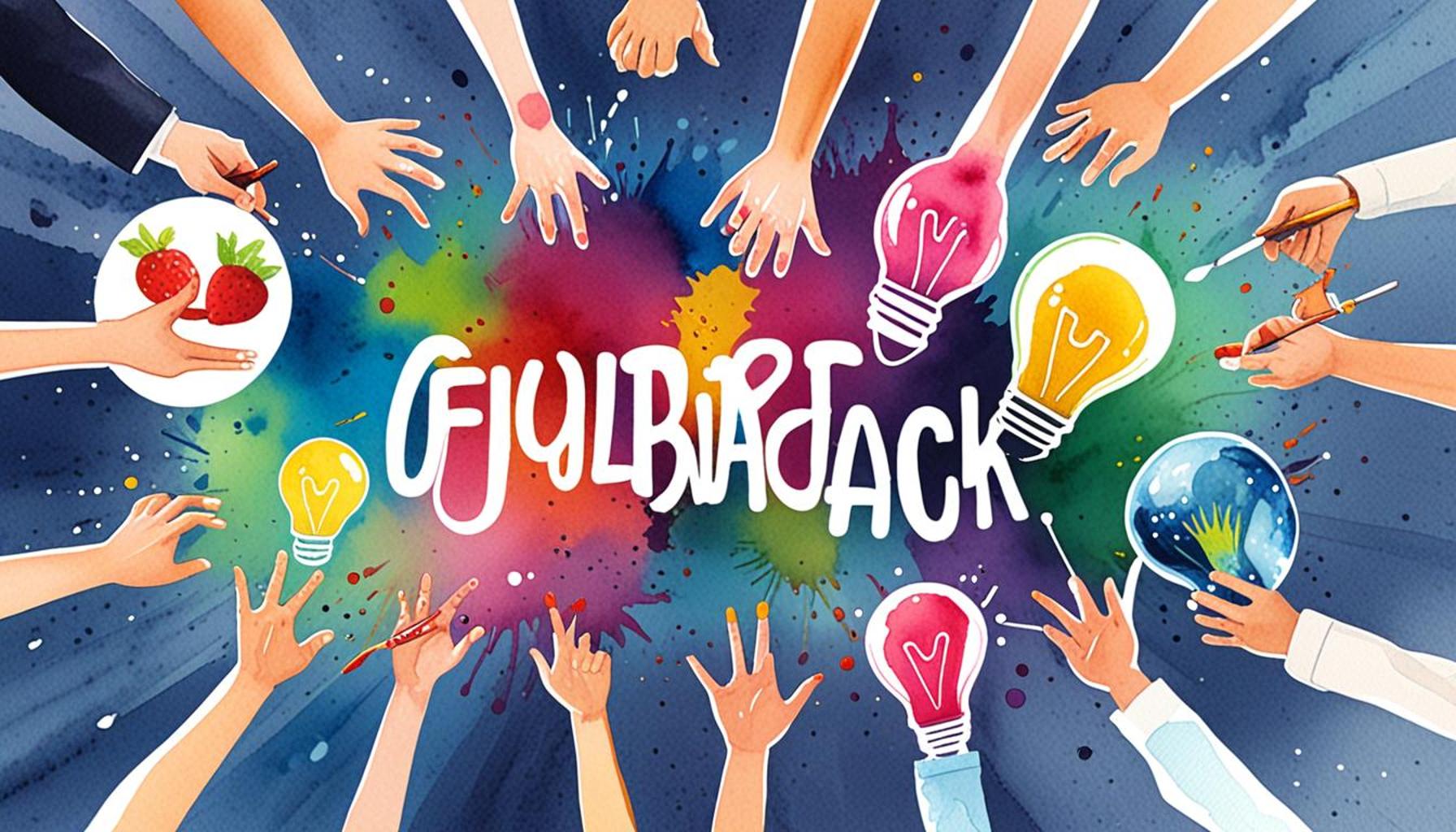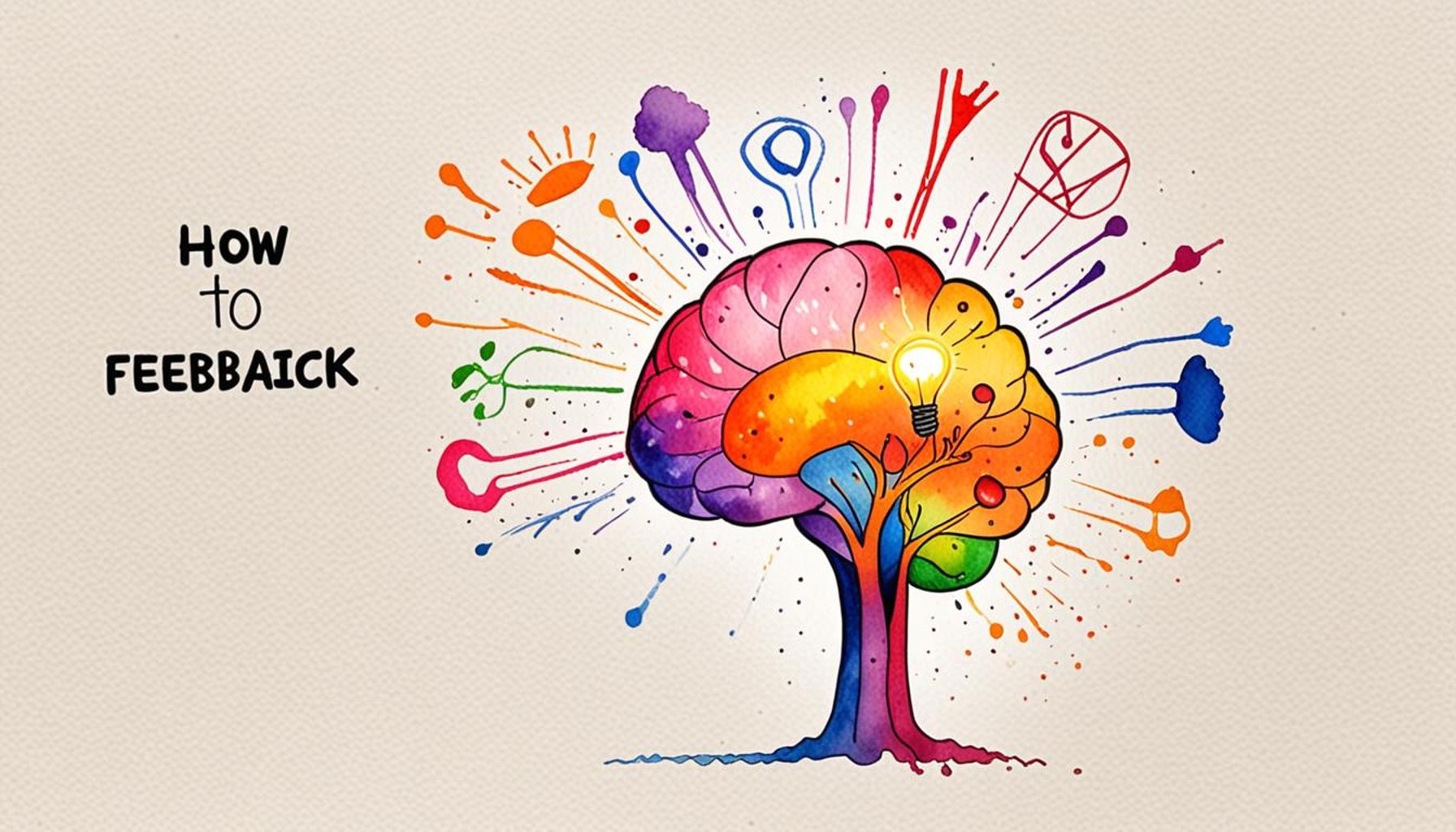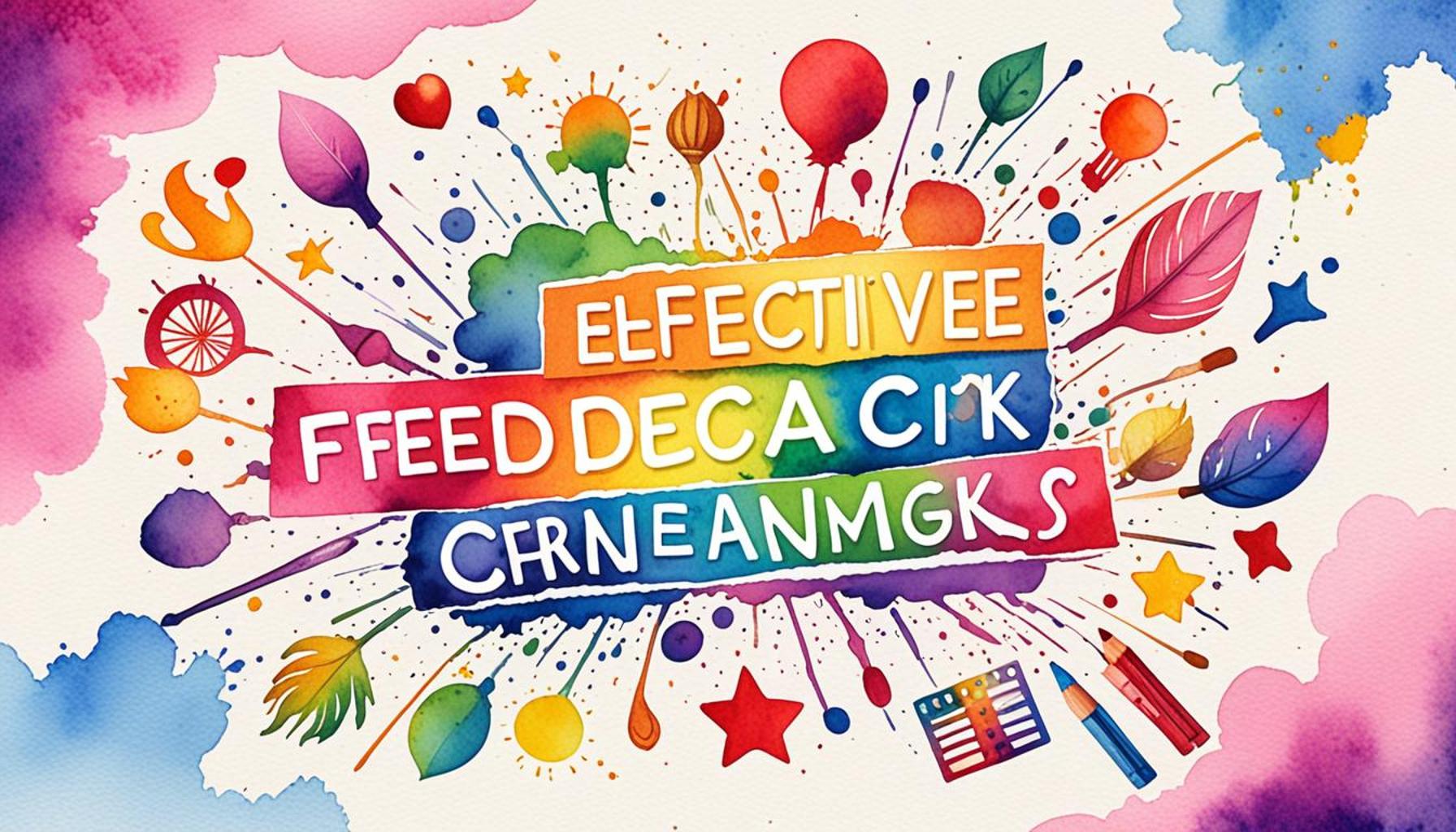Feedback and the Learning Journey: How Reflection and Practice Contribute to Success
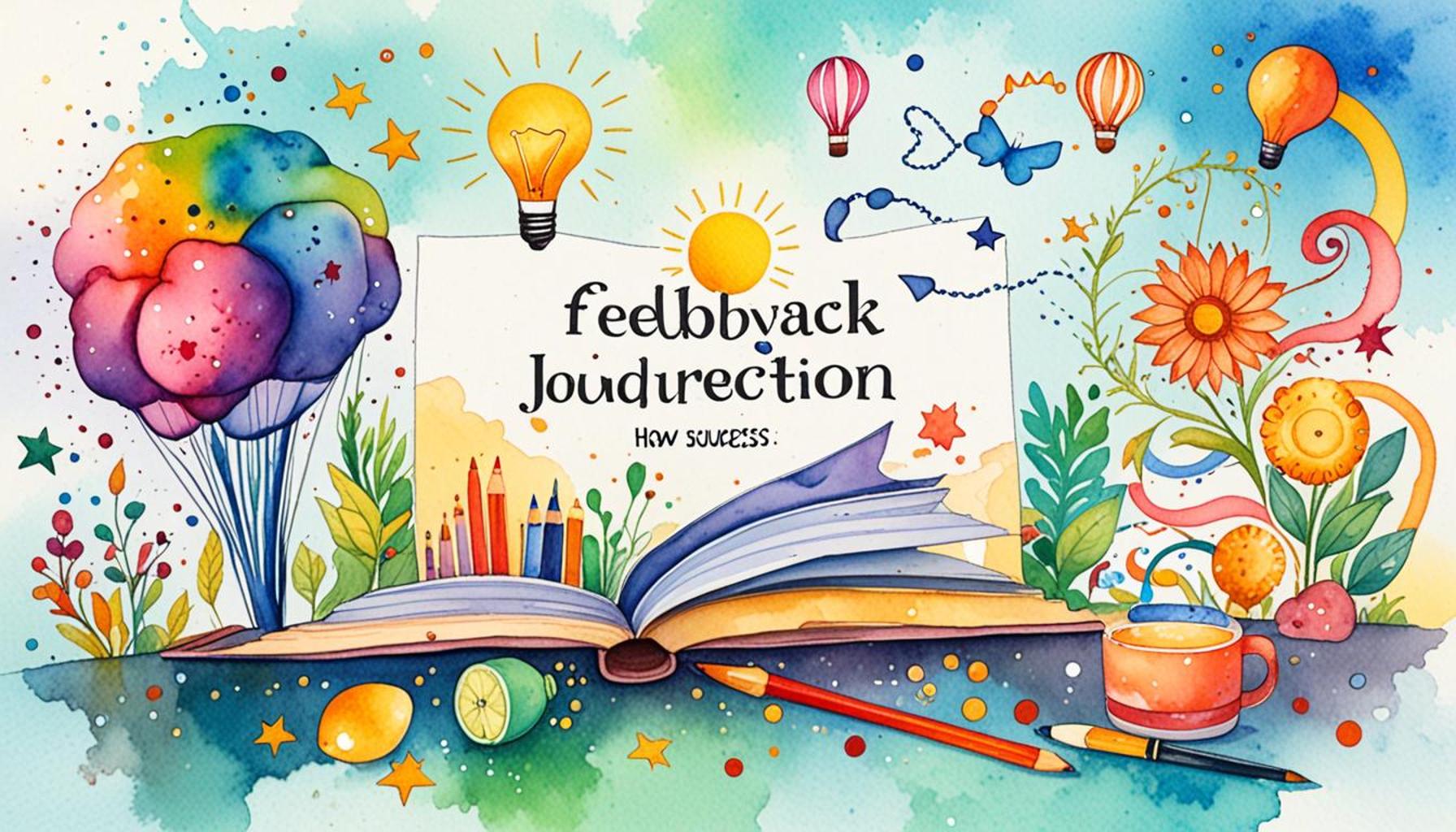
The Role of Feedback in Shaping Personal Growth
In a world that is constantly evolving, feedback has emerged as a fundamental element in the learning process. It serves not merely as a mechanism for evaluation but also as an essential conduit for personal growth and development. When utilized correctly, feedback can be a powerful catalyst for success, opening doors to new opportunities and enhancing individual capabilities in various arenas, from education to professional settings.
The Dynamics of Effective Feedback
Feedback should not be perceived solely as a mere exchange of words—be it praise or criticism. Instead, it is a structured dialogue that invites introspection and promotes growth. Here are several key components vital for maximizing the impact of feedback:
- Active reflection: Taking time to digest feedback is crucial. This means stepping back and considering how the feedback aligns with personal goals and performance. For instance, a student in Nigeria who has received feedback on a written assignment should reflect on specific areas of improvement, such as argument structure or clarity, rather than merely focusing on the grade received.
- Consistent practice: Regularly applying the lessons learned from feedback is essential for mastering skills. For example, if a professional has received critiques regarding their presentation skills, they should seek opportunities to practice these skills in various settings, whether in small team meetings or larger forums.
- Openness to growth: Adopting a receptive attitude towards feedback fosters a culture of continuous improvement. Rather than becoming defensive, embracing criticism as constructive can transform setbacks into valuable learning experiences. This is especially important in the Nigerian context, where societal expectations can sometimes stifle individual expression. Encouraging a growth mindset can help individuals turn challenges into stepping stones for success.
Shifting Perspectives on Feedback in Nigeria
In Nigeria, an understanding of how to effectively utilize feedback in both educational and professional contexts is imperative as the landscape of learning continues to shift rapidly. For students, this may mean recognizing feedback as a tool rather than an endpoint—an opportunity for engagement with their own learning process. Those in professional environments can also benefit significantly from feedback loops that encourage open conversations and peer reviews, enabling collaboration and innovation.
By adopting and embracing the principles of feedback and reflection, individuals can customize their learning journeys, paving their way to success. These principles not only create a robust foundation for learning but also add richness to the experience, shaping personal and professional growth in profound ways. As one navigates the complexities of life in Nigeria, the capacity to understand and apply feedback will invariably lead to a more fulfilling and successful journey, making the learning process invaluable in all its facets.
ADDITIONAL INSIGHTS: Expand your understanding here
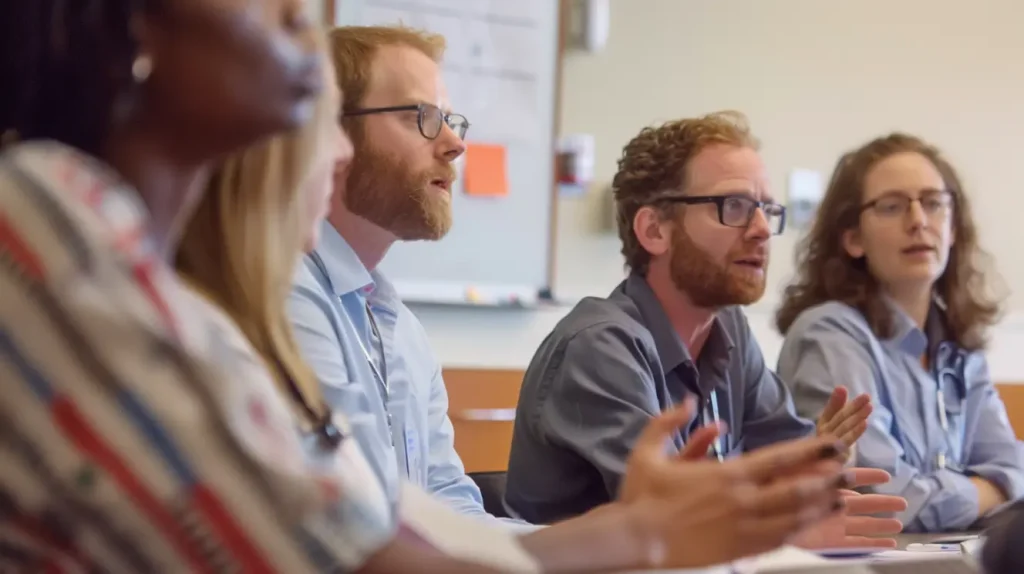
Navigating the Feedback Loop: Key Steps Towards Effective Learning
Understanding the intricacies of feedback is essential for anyone looking to cultivate a successful learning journey, especially in a diverse environment like Nigeria. To truly harness the power of feedback, it is critical to recognize that it is not just a one-off event but rather an ongoing process that involves multiple stages. Engaging with feedback effectively can be transformative, laying the groundwork for both personal and professional excellence. Here are some vital steps to navigating this feedback loop:
- Identify Specific Feedback: It is important to pinpoint feedback that is actionable and relevant to your goals. For instance, if a university student in Lagos receives feedback on their public speaking skills, they should focus on the actionable aspects rather than just general comments. This clarity allows for targeted growth.
- Seek Clarification: If any feedback is unclear or lacks context, asking for more details can greatly enhance understanding. Engaging in a dialogue with mentors or peers can shed light on different perspectives, especially in the vibrant educational landscape of Nigeria. This discussion not only improves your comprehension but also demonstrates your commitment to personal development.
- Document Progress: Keeping a record of feedback received, along with reflections on how it was applied, can be a valuable resource. This written reflection serves not only as a personal journal but also as a roadmap for future improvements. For example, a budding entrepreneur could track client feedback while refining their business strategies, providing a clear view of progress over time.
- Test and Iterate: Feedback should lead to action, followed by a cycle of testing and reflection. By experimenting with new techniques or strategies based on feedback, and then assessing the outcomes, individuals can grow their skill set more effectively. This iterative process is especially pertinent within the digital marketing scene in Nigeria, where fast-paced developments necessitate quick adaptability.
Each of these steps plays a crucial role in developing a holistic approach to learning. Whether one is a student aiming for academic excellence or a professional seeking to climb the corporate ladder, the ability to navigate feedback effectively is instrumental in shaping the learning journey. Reflection and practice serve to deepen understanding and enhance skills, which leads to overall success in personal endeavors.
Furthermore, feedback also encourages individuals to tackle challenges that may arise in their learning processes. In Nigeria, where cultural expectations sometimes impose rigid standards on performance, it becomes vital to view feedback as an essential lesson rather than simply a critique. Adopting such a perspective promotes resilience and adaptability, essential traits for overcoming obstacles and achieving long-term objectives.
In conclusion, feedback is not merely a reaction to performance; it is a proactive component of an evolving learning journey. With the right mindset and strategies in place, individuals can turn insights into actions that propel them toward their goals. The rich tapestry of life experiences in Nigeria offers ample opportunities for learning and growth, making the relationship between feedback and personal development one worth exploring.
Understanding the Role of Feedback in Learning
The importance of feedback in shaping the learning journey cannot be overstated. It serves as a critical tool that enables individuals to identify their strengths and weaknesses. Through the process of receiving and acting on feedback, learners can make informed decisions about their next steps, fostering a cycle of continuous improvement. Effective feedback is typically timely, specific, and constructive, allowing learners to focus on areas that require enhancement while reinforcing what they are doing well. This process not only boosts their confidence but also increases their motivation to engage in further learning activities.
The Impact of Reflective Practice
Moreover, reflective practice emerges as a powerful aspect of the success equation. By engaging in regular reflection, learners can analyze their experiences, gain insights, and adapt their approaches accordingly. This reflective process encourages deeper understanding and retention of knowledge, paving the way for enhanced problem-solving skills and innovation. For instance, educators and students alike can utilize journals or discussions as a means to articulate their thoughts and facilitate exploration of new ideas. This critical thinking element is typically where the real learning transformation occurs.
Integrating Feedback and Reflection
Integrating feedback with reflective practice can significantly amplify the learning journey. When learners actively reflect on the feedback they receive, they are more inclined to take ownership of their learning process. This integration fosters a growth mindset, where challenges are viewed as opportunities for development. Studies indicate that individuals who engage in both reflective practices and seek regular feedback are often better equipped to navigate their learning paths successfully. As this dual approach becomes habitual, learners cultivate resilience, adaptability, and a deeper appreciation of their educational experiences, setting a foundation for lifelong learning.
Discovering the Benefits of a Systematic Approach
Adopting a systematic approach to feedback and reflection enhances the learning experience comprehensively. It not only leads to improved academic performance but also equips individuals with tools necessary for real-world applications. Such skills are increasingly relevant as workplaces evolve toward a more collaborative and dynamic structure. By continuously refining their abilities based on feedback and self-reflection, learners can excel in diverse environments, adapting to various challenges and contributing effectively to their teams. This process aligns with the contemporary demands of professional settings, making it essential for learners to invest time and effort into mastering these techniques.
| Advantages of Feedback | Impact on Learning |
|---|---|
| Promotes Growth | Encourages continuous improvement through constructive criticism. |
| Enhances Self-awareness | Facilitates understanding of strengths and areas for development. |
Utilizing these synergistic elements of feedback and reflective practice not only enhances learning outcomes but also cultivates essential life skills. As readers delve deeper into their learning journeys, they will find these strategies invaluable for achieving success.
RECOMMENDED: Check out this similar article
Embracing Reflection: The Heart of Personal Growth
While navigating the feedback loop is a vital step in the learning journey, the practice of reflection is where the true magic happens. Reflection allows individuals to critically assess their experiences, behaviors, and outcomes, paving the way for deeper insights and enhanced learning. In a country as diverse and dynamic as Nigeria, this is particularly important as learners bring a variety of cultural and personal backgrounds into the educational fold.
One effective way to embrace reflection is through structured methods such as the Reflective Journaling technique. By regularly writing about daily experiences, successes, and areas for improvement, individuals can identify patterns in their learning and behavior. For instance, a teacher in a rural school might reflect on their approach to classroom management after receiving feedback from students. Through journaling, they might discover that their stylistic choices resonate with some students yet hinder engagement in others. This awareness enables targeted interventions that cater to diverse learning needs.
Another powerful tool is Peer Reflection, where learners engage in collaborative discussions around feedback and personal experiences. This practice fosters a sense of community and encourages accountability. In a Nigerian context, where communal values are significant, creating learning circles or study groups can facilitate rich conversations. Such gatherings not only provide a platform for sharing feedback but also offer collective support in tackling challenges, thus enhancing the learning experience.
Cultivating a Growth Mindset
A critical aspect of reflection is developing a growth mindset. This concept, popularized by psychologist Carol Dweck, emphasizes the belief that abilities and intelligence can be developed through hard work and dedication. In Nigeria, where economic disparities often dictate access to education and opportunities, instilling a growth mindset can empower individuals to view challenges as opportunities for improvement rather than as setbacks.
For instance, a young entrepreneur struggling to establish a business can leverage feedback from their early clients. Instead of being disheartened by negative reviews, adopting a growth mindset allows them to see each piece of feedback as invaluable guidance towards refinement. By reflecting on their progress and implementing changes, they cultivate resilience and adaptability—skills that are vital for success in Nigeria’s competitive marketplace.
The Power of Practice: Making Knowledge Stick
Beyond reflection, practice is an essential factor in ensuring success throughout the learning journey. Repeated application of learned skills forms neural pathways in the brain, making it easier to recall and apply knowledge in real-world scenarios. In Nigeria, a country where practical experience often complements formal education, combining feedback with rigorous practice can yield profound results.
Consider a student studying in fields such as medicine or engineering, where hands-on training is pivotal. By actively engaging in internships or community projects based on the feedback received from instructors, these students experience rapid skill acquisition. Engaging in practice reinforces lessons learned and allows students to tie theoretical knowledge to practical application, resulting in a well-rounded understanding.
- Iterative Learning: Utilizing feedback and applying it through practice fosters a cycle of iterative learning. Whether through simulations in university laboratories or workshops in vocational schools, learners can repeatedly test their knowledge, thereby increasing confidence and expertise.
- Real-World Application: Opportunities for practice may arise in everyday life, from volunteering in community service projects to participating in local business initiatives. These experiences not only serve as platforms for applying feedback but also enrich the learner’s understanding of their environment.
In this way, reflection and practice work hand-in-hand, serving not only as tools for individual advancement but also as vital components of a holistic educational experience. As both students and professionals traverse their learning journeys, embracing a commitment to feedback can significantly enhance their paths to achievement and personal growth.
ADDITIONAL INSIGHTS: Expand your understanding here
Conclusion: Navigating Success Through Reflection and Practice
In conclusion, the intertwining of feedback, reflection, and practice forms a powerful triad that significantly shapes the learning journey. In the vibrant educational landscape of Nigeria, recognizing the importance of these elements can transform not only individual experiences but also the broader community’s approach to learning. Through critical reflection, learners develop a keen awareness of their strengths and areas for improvement, enabling them to personalize their educational paths.
The implementation of structured approaches, such as reflective journaling and peer reflection, offers substantial benefits, fostering an environment where feedback is seen as a stepping stone rather than a hurdle. This shift in perspective is crucial for cultivating a growth mindset, encouraging individuals to embrace challenges and consider setbacks as opportunities for growth.
Furthermore, consistent practice ensures that knowledge is not just acquired but retained and effectively applied. This is particularly relevant in a practical context like Nigeria, where hands-on experience often bridges the gap between theory and real-world application. By actively engaging with their environments—be it through internships, community projects, or collaborative learning—they reinforce their learning, thus enhancing their capabilities.
Ultimately, as learners commit to this enriching cycle of feedback, reflection, and practice, they pave their paths to success—both personally and professionally. The journey is ongoing, filled with lessons and growth, empowering individuals to navigate their futures with resilience and confidence. Embracing these principles not only enhances personal achievement but also contributes to the development of a more informed, adaptive, and robust society.
